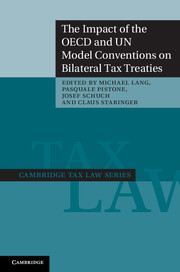Book contents
- Frontmatter
- Contents
- Contributors
- Preface
- Table of cases
- Table of statutes
- General report
- 1 Argentina
- 2 Australia
- 3 Austria
- 4 Belgium
- 5 Brazil
- 6 Canada
- 7 Chile
- 8 China
- 9 Colombia
- 10 Croatia
- 11 The Czech Republic
- 12 Estonia
- 13 Finland
- 14 France
- 15 Germany
- 16 Hong Kong
- 17 Hungary
- 18 India
- 19 Italy
- 20 Lebanon
- 21 Liechtenstein
- 22 The Netherlands
- 23 New Zealand
- 24 Norway
- 25 Peru
- 26 Poland
- 27 Portugal
- 28 Romania
- 29 The Russian Federation
- 30 Serbia
- 31 Slovakia
- 32 Slovenia
- 33 Spain
- 34 Sweden
- 35 Uganda
- 36 The UK
- 37 The USA
- Index
- References
34 - Sweden
Published online by Cambridge University Press: 05 November 2014
- Frontmatter
- Contents
- Contributors
- Preface
- Table of cases
- Table of statutes
- General report
- 1 Argentina
- 2 Australia
- 3 Austria
- 4 Belgium
- 5 Brazil
- 6 Canada
- 7 Chile
- 8 China
- 9 Colombia
- 10 Croatia
- 11 The Czech Republic
- 12 Estonia
- 13 Finland
- 14 France
- 15 Germany
- 16 Hong Kong
- 17 Hungary
- 18 India
- 19 Italy
- 20 Lebanon
- 21 Liechtenstein
- 22 The Netherlands
- 23 New Zealand
- 24 Norway
- 25 Peru
- 26 Poland
- 27 Portugal
- 28 Romania
- 29 The Russian Federation
- 30 Serbia
- 31 Slovakia
- 32 Slovenia
- 33 Spain
- 34 Sweden
- 35 Uganda
- 36 The UK
- 37 The USA
- Index
- References
Summary
The relevance of the OECD and UN Model Conventions and their Commentaries for the interpretation of Swedish tax treaties
Introduction
Sweden has currently concluded almost 100 double taxation conventions that are still in force, most of which closely follow the OECD Model Tax Convention on Income and on Capital (OECD Model). This is also the case for the Swedish Model Tax Convention (Swedish Model), which was updated in September 2009. In this chapter I will concentrate on the deviations between Swedish policy (as expressed both in the treaty practice and in the Swedish Model) and the OECD Model. Since the differences in relation to the United Nations Model Double Taxation Convention between Developed and Developing Countries (UN Model) are more frequent, I will rather point to the occasions where Swedish policy corresponds to the UN solutions. However, when Swedish policy is in conformity with both the OECD and the UN Models, this will also be stated.
The general, and formal, reason for the close conformity with the OECD Model is of course that Sweden is a Member country of the OECD. Another more pragmatic reason would be that Sweden is a developed country which exports capital to developing countries. It is true that the export of capital hardly dominates over the import of capital in Sweden, but the latter is foremost due to an inflow from other developed countries and, in relation to these countries, the levels of inflow and outflow are relatively similar.
- Type
- Chapter
- Information
- Publisher: Cambridge University PressPrint publication year: 2012

